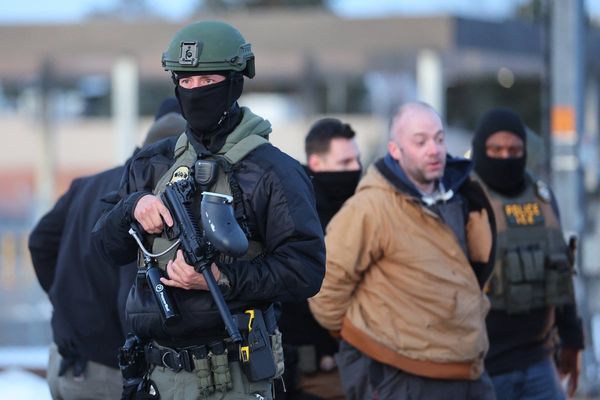
Some of the consequences of Palestine Action being temporarily designated a terror group have been “overstated”, a High Court judge has said.
Huda Ammori, the co-founder of Palestine Action, asked the High Court to temporarily block the Government from banning the group as a terrorist organisation, before a potential legal challenge against the decision to proscribe it under the Terrorism Act 2000.
Judge Mr Justice Chamberlain refused to grant the temporary block, finding there was a “strong public interest in maintaining the order in force”.
Lawyers for Palestine Action will now make a last-minute bid at the Court of Appeal to challenge this decision, as the ban is expected to come into force at midnight.
In a 26-page judgment, Mr Justice Chamberlain said that “some of the consequences feared by the claimant and others who have given evidence are overstated” if the temporary block was refused, but a later challenge against the ban succeeded.
He continued: “It will remain lawful for the claimant and other persons who were members of Palestine Action prior to proscription to continue to express their opposition to Israel’s actions in Gaza and elsewhere, including by drawing attention to what they regard as Israel’s genocide and other serious violations of international law.
“They will remain legally entitled to do so in private conversations, in print, on social media and at protests.”
He added: “It follows that it is hyperbole to talk of the claimant or others being ‘gagged’ in this respect, as the claimant has alleged.
“They could not incur criminal liability based on their past association with a group which was not proscribed at the time.
“That said, there is no doubt that there will be serious consequences if the order comes into effect immediately and interim relief is refused.”
The judge later said that if people choose to continue to express support for Palestine Action post-proscription, they may face criminal consequences, adding: “This, however, is the intended effect of the order. It is how it achieves its aim of disrupting the activities of the proscribed organisation.”
The proposal to ban the group was approved by both the House of Commons and the House of Lords earlier this week and would make membership and support for the direct action group a criminal offence punishable by up to 14 years in prison.
Some 81 organisations are already proscribed under the 2000 Act, including Hamas, al Qaida and National Action.
At the High Court hearing on Friday, Raza Husain KC, for Ms Ammori, asked the court to suspend the “ill-considered” and “authoritarian abuse of statutory power” until a hearing in the wider legal challenge, due around July 21.
The hearing later in July is expected to deal with whether Ms Ammori can bring a High Court challenge over the planned proscription.
Ben Watson KC, for the Home Office, told the High Court there was an “insuperable hurdle” in the bid to temporarily block the banning of the group, adding it could challenge the Home Secretary’s decision at the Proscribed Organisations Appeal Commission, a specialist tribunal, rather than at the High Court.
Following the High Court’s decision on Friday, Ms Ammori said: “The Home Secretary is rushing through the implementation of the proscription at midnight tonight despite the fact that our legal challenge is ongoing and that she has been completely unclear about how it will be enforced, leaving the public in the dark about their rights to free speech and expression after midnight tonight when this proscription comes into effect.
“Hundreds of thousands of people across the country have expressed support for Palestine Action by joining our mailing list, following and sharing our social media content and signing petitions, and many, including iconic figures like Sally Rooney, say they will continue to declare ‘we are all Palestine Action’ and speak out against this preposterous proscription, demonstrating how utterly unworkable it will be.”







